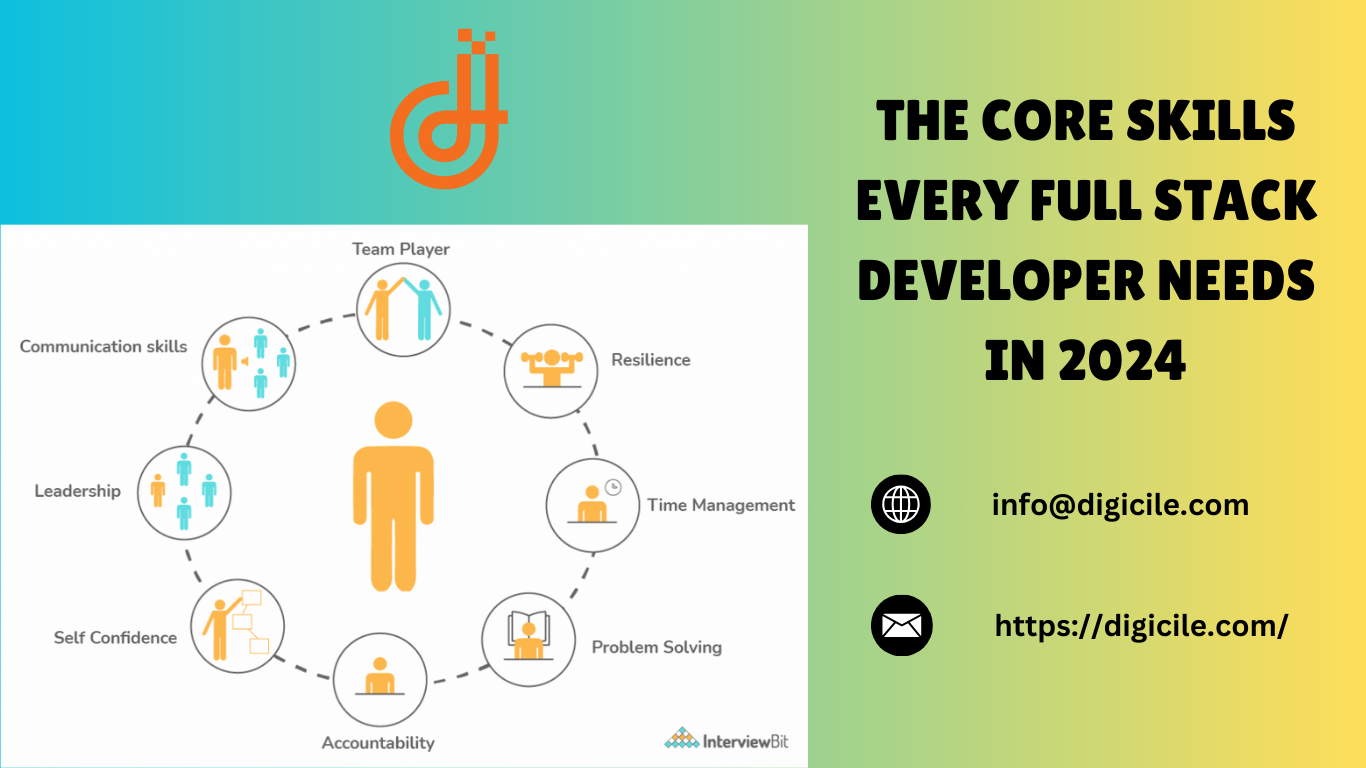As technology continues to evolve at a rapid pace, the role of full stack developers remains as vital as ever. In 2024, staying ahead of the curve requires a diverse skill set and a willingness to adapt to emerging trends. Skills for full stack developer proficient in JavaScript, HTML, CSS, React, Node.js, Express, MongoDB. Experienced in building scalable web.
In this blog, we’ll explore the core skills that every full stack developer needs to thrive in the ever-changing landscape of web development.
Proficiency in Frontend Technologies
Frontend development forms the cornerstone of a full stack developer’s skill set. Mastery of HTML, CSS, and JavaScript is essential for creating captivating user interfaces and delivering seamless user experiences. Familiarity with frontend frameworks like React, Angular, or Vue.js empowers developers to build dynamic and responsive web applications.
Strong Backend Development Skills
Backend development is where the magic happens behind the scenes. Full stack developers must possess a solid understanding of server-side programming languages such as Python, Node.js, or Java, along with proficiency in database management systems like MySQL, PostgreSQL, or MongoDB. By mastering backend technologies, developers can build robust server-side logic and efficiently handle data processing and storage.
Understanding of RESTful API Design
RESTful APIs (Representational State Transfer) serve as the backbone of modern web applications, enabling communication between the frontend and backend systems. Full stack developers should be well-versed in RESTful API design principles, including resource naming, HTTP methods, and response formats. By designing clean and intuitive APIs, developers can facilitate seamless integration with third-party services and enhance the scalability of their applications.
Knowledge of DevOps Practices
In today’s agile development environment, DevOps practices have become increasingly important for streamlining the software development lifecycle. Full stack developers should be familiar with version control systems like Git, continuous integration/continuous deployment (CI/CD) pipelines, and infrastructure automation tools like Docker and Kubernetes. By embracing DevOps principles, developers can accelerate the development process and improve collaboration between development and operations teams.
Proficiency in Cloud Computing Platforms
Cloud computing has revolutionized the way applications are deployed, scaled, and managed. Full stack developers should have hands-on experience with cloud computing platforms such as AWS (Amazon Web Services), Microsoft Azure, or Google Cloud Platform. By leveraging cloud services like compute, storage, and networking, developers can build scalable and resilient applications that meet the demands of modern users.
Embrace of Micro Services Architecture
Micro services architecture has gained popularity in recent years for its ability to decompose complex applications into smaller, loosely coupled services. Full stack developers should understand the principles of micro services architecture and be capable of designing, building, and deploying micro services-based applications. By breaking down monolithic applications into smaller, independently deployable services, developers can achieve greater agility and scalability.
Commitment to Continuous Learning
The technology landscape is evolving, with new frameworks, tools, and best practices emerging regularly. Full stack developers must possess a growth mindset and a commitment to continuous learning. Whether it’s exploring new programming languages, experimenting with cutting-edge technologies, or contributing to open-source projects, ongoing learning is essential for staying relevant and advancing in the field.
Becoming a proficient full stack developer in 2024 requires a diverse skill set and a willingness to adapt to changing technologies and trends. From mastering frontend and backend technologies to embracing DevOps practices, cloud computing, and micro services architecture, the core skills outlined in this blog will empower developers to build innovative and scalable web applications that meet the needs of modern users.






